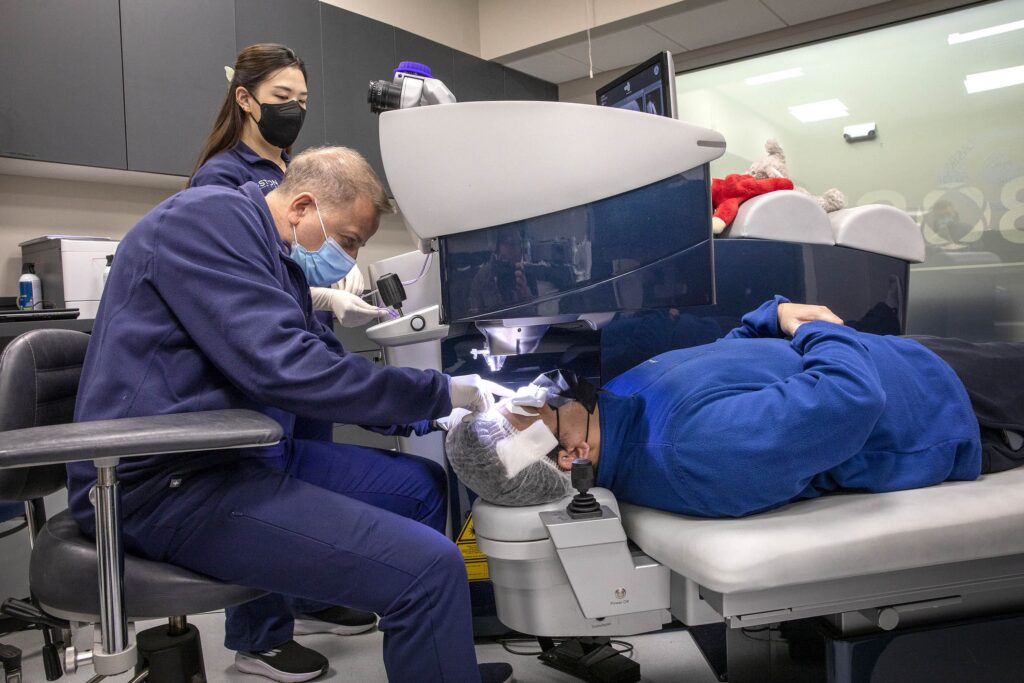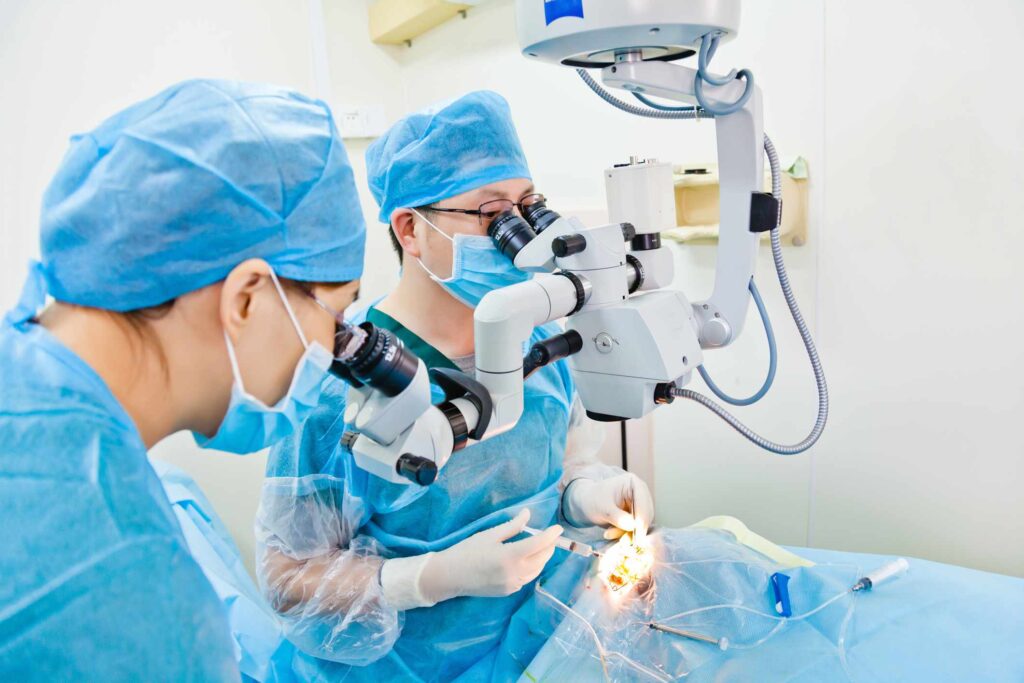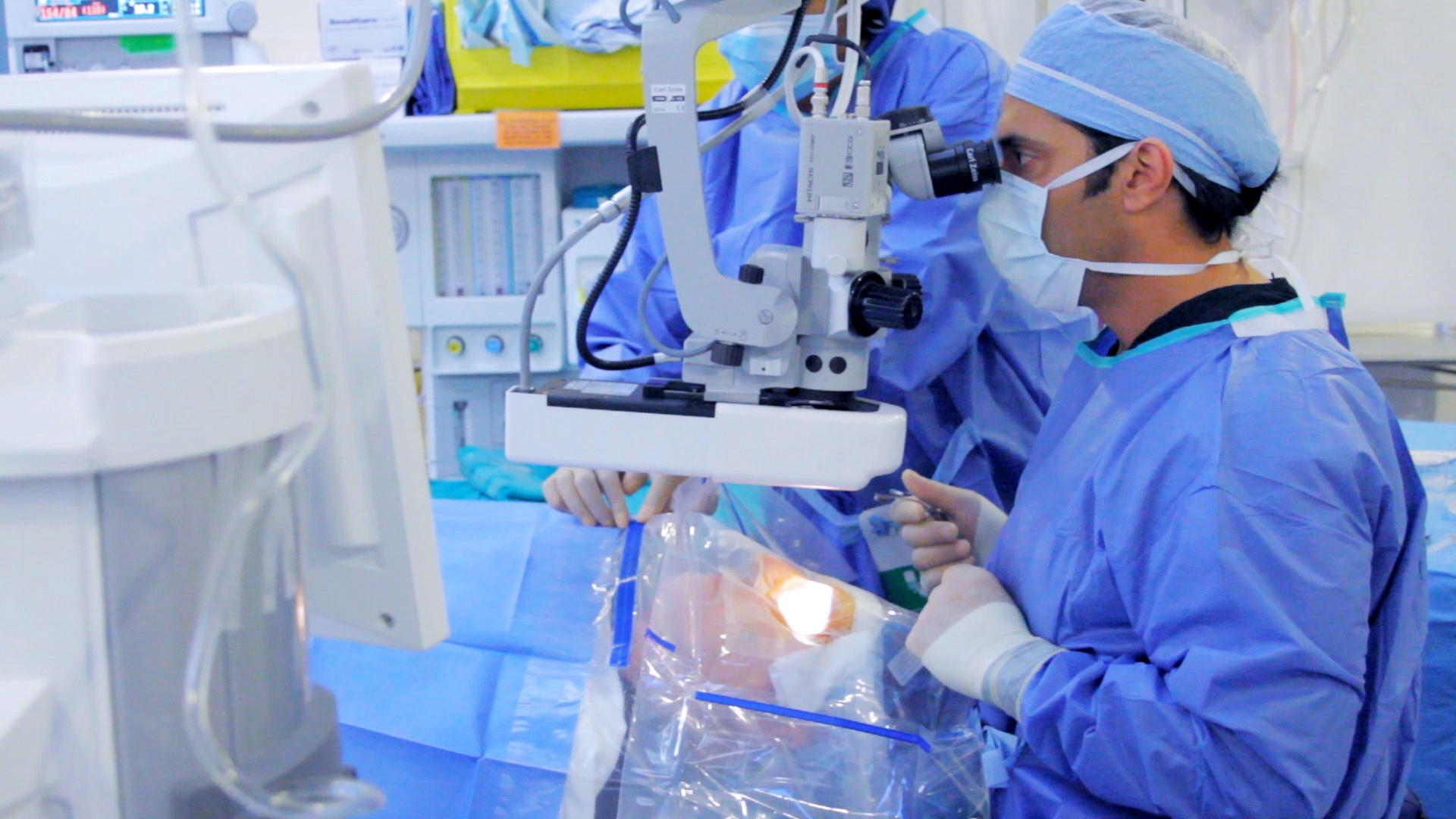Glaucoma is a serious eye condition that affects millions of people worldwide. It is a progressive disease that can lead to vision loss if left untreated. While there are various treatment options available, including medication and laser therapy, sometimes surgery is needed to control the progression of the disease. Understanding the recovery process after glaucoma surgery is essential for a successful outcome.
In this article, we will explore the importance of glaucoma surgery, how much does glaucoma surgery cost in Australia, the post-surgery recovery process, and provide tips for a successful recovery.
Understanding Glaucoma and Its Impact on Vision
Glaucoma is a group of eye conditions that damage the optic nerve, which connects the eye to the brain. It is often caused by increased fluid pressure in the eye, leading to optic nerve damage. This damage can result in gradual vision loss, starting with peripheral vision and eventually affecting central vision as well. If left untreated, glaucoma can cause irreversible blindness.
Glaucoma is a complex eye disease that requires ongoing management to prevent vision loss. The optic nerve damage associated with glaucoma is typically a result of increased intraocular pressure, which can be caused by a buildup of aqueous humor in the eye. This pressure can gradually wear down the optic nerve fibers, leading to vision impairment over time. You can visit https://test-eye.com/combating-glaucoma-progression-how-surgery-can-help-preserve-vision to get about combating glaucoma progression.
What is Glaucoma?
Glaucoma is a chronic eye disease that damages the optic nerve. It is usually associated with high eye pressure, but it can also occur with normal eye pressure. There are several types of glaucoma, including open-angle glaucoma, angle-closure glaucoma, and normal-tension glaucoma. Regular eye exams and early detection are crucial to prevent vision loss caused by glaucoma.
Open-angle glaucoma, the most common form of the disease, develops slowly and is often asymptomatic in the early stages. Angle-closure glaucoma, on the other hand, can progress rapidly and cause sudden symptoms like severe eye pain, headache, blurred vision, and nausea. Normal-tension glaucoma is a subtype where optic nerve damage occurs despite normal eye pressure levels, highlighting the complexity of this condition.
How Does Glaucoma Affect Your Vision?
Glaucoma affects your vision gradually over time. Initially, it may cause the loss of peripheral vision, also known as tunnel vision. As the disease progresses, it can lead to a reduction in central vision as well. Glaucoma can impact your ability to perform everyday tasks such as driving, reading, and recognizing faces. It is important to manage glaucoma effectively to preserve your vision.
As glaucoma advances, individuals may experience halos around lights, difficulty adjusting to darkness, and a significant decrease in visual acuity. The visual field loss caused by glaucoma can vary from person to person, with some individuals retaining central vision while others experience severe peripheral vision loss. Early intervention through medication, laser treatment, or surgery can help slow down the progression of the disease and protect remaining vision.
The Importance of Glaucoma Surgery
While glaucoma can be managed with medication and laser therapy, surgery is sometimes necessary to achieve better control over the condition and prevent further vision loss. Glaucoma surgery aims to lower intraocular pressure by improving the outflow of fluid from the eye. By reducing the pressure, it helps to protect the optic nerve and preserve vision. The decision to undergo glaucoma surgery is typically made after careful consideration by an ophthalmologist.
Glaucoma surgery is a significant step in the treatment of glaucoma, especially in cases where traditional methods have not been effective in controlling the progression of the disease. It offers a more direct approach to managing intraocular pressure and can provide long-term benefits in preserving vision and preventing irreversible damage to the optic nerve. The success of glaucoma surgery often depends on the individual’s response to the procedure and their commitment to post-operative care and follow-up appointments.

The Role of Surgery in Glaucoma Treatment
Glaucoma surgery plays a crucial role in the overall treatment plan for individuals with glaucoma. It is often recommended when other treatment options have not adequately controlled the intraocular pressure or when there is a high risk of vision loss. Surgery helps to improve the drainage of fluid from the eye, reducing the pressure and preventing further damage to the optic nerve. It is a valuable tool in managing glaucoma and preserving vision.
Furthermore, glaucoma surgery can also help reduce the reliance on multiple medications that may be needed to control the condition. By addressing the root cause of elevated intraocular pressure, surgery can offer a more sustainable solution for long-term management of glaucoma. Patients who undergo glaucoma surgery may experience improved quality of life and reduced dependency on frequent eye drops or oral medications.
Different Types of Glaucoma Surgeries
There are several types of glaucoma surgeries available, and the specific procedure performed depends on the individual’s needs and the severity of the condition. Some common glaucoma surgeries include trabeculectomy, tube shunt implantation, and laser trabeculoplasty. Each surgery has its own advantages and considerations, and your ophthalmologist will recommend the most suitable option for your specific situation.
Trabeculectomy is a traditional glaucoma surgery that creates a new drainage channel in the eye to allow fluid to flow out more effectively, thereby reducing intraocular pressure. Tube shunt implantation involves the placement of a small tube in the eye to facilitate drainage, particularly in cases where trabeculectomy may not be suitable. Laser trabeculoplasty is a minimally invasive procedure that uses laser energy to improve drainage in the eye. Your ophthalmologist will discuss the benefits and risks of each type of surgery to help you make an informed decision about your glaucoma treatment.
The Post-Surgery Recovery Process
After undergoing glaucoma surgery, it is important to understand and follow the post-surgery recovery process. This stage is critical for a successful outcome and long-term vision preservation. The recovery process involves different stages, and it is essential to take certain precautions and follow specific guidelines provided by your ophthalmologist.
Glaucoma surgery is a delicate procedure that aims to reduce intraocular pressure and prevent further damage to the optic nerve. The surgery may involve creating a new drainage channel for the fluid inside the eye or using laser technology to improve fluid outflow. Understanding the purpose of the surgery can help you appreciate the importance of the recovery process in achieving the desired outcome.
What to Expect Immediately After Surgery
Immediately after glaucoma surgery, it is common to experience some discomfort and blurred vision. Your eye may be sensitive to light, and you may need to wear an eye patch for a short period. It is important to rest and avoid any strenuous activities that can increase eye pressure. Follow the instructions provided by your ophthalmologist regarding eye drops, medications, and any specific care requirements during this critical stage of recovery.
During the initial recovery period, it is normal to have follow-up appointments with your ophthalmologist to monitor your eye’s healing progress. Your doctor will assess your eye’s condition, check for any signs of infection or inflammation, and ensure that your intraocular pressure is within the desired range. These appointments are crucial for early detection of any complications and for adjusting your treatment plan if necessary.
Long-Term Recovery and Healing
The recovery period after glaucoma surgery can vary depending on the type of procedure performed. In general, it may take several weeks to months for your eye to heal completely. During this time, it is important to continue using prescribed eye drops and medications as instructed. Regular follow-up appointments with your ophthalmologist are crucial for monitoring your progress and making any necessary adjustments to your treatment plan.
As your eye continues to heal, you may notice improvements in your vision and overall eye health. It is essential to be patient during the recovery process and follow your doctor’s recommendations diligently. By adhering to the post-surgery care instructions and attending all follow-up appointments, you can maximize the success of your glaucoma surgery and maintain optimal vision for years to come.

Tips for a Successful Recovery
To ensure a successful recovery after glaucoma surgery, it is important to follow certain tips and guidelines recommended by your ophthalmologist. These tips can help to minimize complications and maximize the chances of long-term vision preservation.
One crucial aspect of successful recovery is maintaining a healthy lifestyle. Eating a balanced diet rich in nutrients like vitamins A, C, and E can support eye health and aid in the healing process. Foods like leafy greens, citrus fruits, and nuts can provide essential nutrients that promote overall well-being.
Post-Surgery Care and Hygiene
Proper care and hygiene are essential after glaucoma surgery. It is important to keep the eye clean and avoid touching or rubbing it unnecessarily. Follow the cleaning instructions provided by your ophthalmologist and avoid activities that can introduce dirt or bacteria into your eye. Use the prescribed eye drops as instructed and avoid swimming, hot tubs, or saunas during the initial recovery period.
In addition to following post-surgery care instructions, it is important to protect your eyes from potential harm. Wearing sunglasses outdoors can shield your eyes from harmful UV rays, reducing the risk of complications and promoting healing. Avoiding activities that could result in eye injuries, such as contact sports or heavy lifting, is also crucial during the recovery period.
Follow-Up Appointments and Monitoring
Regular follow-up appointments with your ophthalmologist are vital for monitoring your recovery progress and addressing any concerns or complications. During these appointments, your eye pressure, visual field, and overall eye health will be assessed. Based on the findings, your ophthalmologist may make adjustments to your treatment plan to optimize your recovery and ensure the best possible outcome.
It is important to communicate openly with your ophthalmologist during these follow-up appointments. Discuss any changes in your vision, symptoms you may be experiencing, or concerns about your recovery. By providing detailed information, you enable your healthcare provider to tailor your treatment plan to meet your specific needs and ensure a successful outcome.
Lifestyle Adjustments for Optimal Recovery
In addition to following medical recommendations, certain lifestyle adjustments can contribute to an optimal recovery after glaucoma surgery.
Diet and Exercise Recommendations
A healthy diet and regular exercise can promote overall well-being and potentially contribute to better eye health. Include foods rich in antioxidants, omega-3 fatty acids, and vitamins A, C, and E in your diet. Engage in regular exercise that is suitable for your overall health condition. However, consult with your healthcare provider and ophthalmologist before making any significant changes to your diet or exercise routine.
Managing Stress and Mental Health
Managing stress and maintaining good mental health is essential during the recovery process. Stress can potentially impact your overall well-being and the healing process of your eye. Engage in activities that help you relax and reduce stress, such as meditation, deep breathing exercises, or pursuing hobbies that bring you joy. If needed, seek support from mental health professionals to help you cope with any emotional challenges that may arise during the recovery period.
In conclusion, the recovery process after glaucoma surgery plays a vital role in achieving a successful outcome and preserving vision. Understanding the impact of glaucoma on vision, the importance of surgery, and following the post-surgery recovery process are key steps in optimizing the recovery. By following the recommended tips and guidelines provided by your ophthalmologist, you can enhance your chances of a successful recovery and maintain good eye health in the long run.

